August 27, 2025
Retirement is one of life’s most significant transitions, bringing freedom, new opportunities, and the responsibility of managing both finances and healthcare. For many retirees, understanding Medicare health insurance is a crucial step toward a secure and comfortable retirement. Navigating Medicare can feel complicated, with multiple coverage options, enrollment periods, and policies to consider. However, making informed decisions now can prevent unexpected expenses and ensure you receive the care you need. This article highlights five key areas retirees should understand about Medicare health insurance to make the most of their retirement years.
1. Understanding Medicare Coverage Options
Medicare is divided into different parts—A, B, C, and D—each serving a specific purpose. Part A generally covers hospital stays, skilled nursing, and certain home health services. Part B covers outpatient care, doctor visits, preventive services, and some medical equipment. Part C, also known as Medicare Advantage, combines Parts A and B, often with additional benefits such as dental, vision, or wellness programs. Part D covers prescription medications and is sold through private insurers approved by Medicare.
For retirees, understanding the distinctions between these parts is vital. Original Medicare (Parts A and B) may meet basic healthcare needs, but it may leave gaps in coverage. Choosing the right combination of
Medicare health insurance options depends on your health status, medical history, and financial goals.
2. Choosing Between Original Medicare and Medicare Advantage
One of the first major decisions retirees face is whether to stick with Original Medicare or switch to a Medicare Advantage plan. Original Medicare allows flexibility in choosing healthcare providers and has a standardized set of benefits. However, it often requires supplemental insurance to cover out-of-pocket costs. Medicare Advantage plans, on the other hand, are offered by private insurers and typically include additional benefits, sometimes bundled with prescription drug coverage.
Selecting between Original Medicare and Medicare Advantage requires evaluating your healthcare priorities. Consider the frequency of medical visits, the cost of premiums and copays, and whether you prefer comprehensive coverage in one plan. Medicare Advantage may appeal to retirees seeking predictable costs and extra perks, while Original Medicare might suit those who want greater provider choice and control over healthcare decisions.
Even with Original Medicare, there can be significant gaps in coverage, particularly for copayments, coinsurance, and deductibles. Medigap policies, also known as Medicare Supplement Insurance, are designed to fill these gaps. Each Medigap plan offers a different combination of coverage, so understanding what each plan provides is critical.
When evaluating Medigap policies, retirees should compare premiums, coverage limits, and benefits. It’s important to assess current and anticipated healthcare needs to select a policy that balances cost with protection. According to Agent Methods, the number of insurance agents is expected to grow by 8% over the next decade, which means more professionals will be available to guide retirees in selecting the right Medicare health insurance plan.
3. Evaluating and Selecting a Medigap Policy
Prescription medications can be one of the largest healthcare expenses for retirees. Medicare Part D is designed to help manage these costs by offering prescription drug coverage through private insurers approved by Medicare. Each Part D plan has its own formulary, which is a list of covered medications, as well as varying premiums, copayments, and coverage limits.
Selecting the right Part D plan involves evaluating current prescriptions, expected medication needs, and cost-sharing structures. Many retirees also benefit from using tools like the Medicare Plan Finder to compare options and identify the most cost-effective plan. By understanding how Part D works and choosing a plan that aligns with your prescriptions, you can avoid unexpected costs while ensuring access to necessary medications throughout retirement.
4. Understanding Medicare Part D and Prescription Drug Plans
Timing is critical when enrolling in Medicare. Missing the initial enrollment period can result in late enrollment penalties, which permanently increase the cost of coverage. According to the official Medicare website, the initial enrollment period begins three months before turning 65, includes the month you turn 65, and extends three months after that month.
There are also special enrollment periods for retirees who remain covered under employer-sponsored plans past age 65 or who experience qualifying life events such as moving to a new state. Understanding these deadlines helps retirees avoid gaps in coverage and costly penalties. Planning ahead ensures you secure the Medicare health insurance you need without interruptions and can also provide peace of mind as you transition into retirement.
5. Knowing When to Enroll in Medicare to Avoid Penalties
Beyond understanding coverage options and enrollment periods, retirees can take steps to maximize their Medicare benefits. Regularly reviewing annual plan changes ensures you maintain the most effective coverage. Preventive services, wellness visits, and screenings are often fully covered under Medicare, helping you maintain long-term health. Staying informed about policy updates and new plan offerings also allows you to adjust your coverage as healthcare needs evolve.
Another practical approach is to maintain a clear record of medical history, prescriptions, and anticipated healthcare requirements. Having this information ready makes it easier to evaluate plan options, choose suitable supplemental policies, and avoid unexpected medical expenses. Collaborating with an insurance agent can also simplify the decision-making process, ensuring that you select the most appropriate Medicare health insurance coverage for your unique situation.
6. Understanding the Role of Insurance Agents in Medicare Planning
With the growing complexity of healthcare coverage and the projected 8% growth in the number of insurance agents over the next decade, retirees have more resources than ever to navigate Medicare health insurance. Agents can provide personalized advice, clarify confusing plan details, and help retirees compare costs and benefits across multiple providers.
Utilizing an agent’s expertise can be especially valuable when considering Medigap options or Medicare Advantage plans with multiple add-on benefits. Agents can explain how each plan functions in real-life scenarios, estimate potential out-of-pocket costs, and assist with enrollment deadlines. Engaging a knowledgeable professional often results in better-informed decisions, helping retirees secure comprehensive coverage that aligns with both healthcare needs and financial goals.
7. Balancing Healthcare Needs With Financial Planning
Medicare health insurance is just one piece of the broader retirement planning puzzle. Balancing healthcare costs with other retirement expenses requires thoughtful planning. Consider budgeting for premiums, deductibles, copayments, and out-of-pocket maximums while evaluating potential supplemental coverage.
For retirees with chronic conditions or significant prescription needs, a well-structured Medicare plan can prevent unexpected costs from disrupting your financial stability. Understanding how each plan interacts with existing savings, Social Security benefits, and employer retiree coverage ensures a comprehensive approach to retirement health management. The goal is to maintain both physical well-being and financial security throughout your retirement years.
8. Making Informed Medicare Health Insurance Decisions
Ultimately, the key to successful retirement health planning lies in making informed decisions. By understanding Medicare coverage options, evaluating Original Medicare versus Medicare Advantage, selecting appropriate Medigap policies, considering Part D prescription coverage, and enrolling on time, retirees can protect both their health and finances.
Medicare health insurance may seem complex, but with careful planning and the right guidance, retirees can navigate the system confidently. Taking advantage of available resources, including insurance agents and online tools, helps ensure that coverage matches healthcare needs and lifestyle preferences. Staying proactive about enrollment, plan selection, and annual reviews positions retirees to enjoy a secure, healthy, and well-prepared retirement.
Retirees face many choices when it comes to Medicare health insurance, and making smart decisions today can lead to a more comfortable and financially secure future. Understanding coverage options, evaluating supplemental plans, managing prescription costs, and meeting enrollment deadlines are essential steps for a successful retirement. With the guidance of knowledgeable agents and careful planning, retirees can confidently navigate Medicare health insurance and enjoy peace of mind throughout this important life stage. If you have Medicare questions, don't hesitate; call Teton Medicare today!




